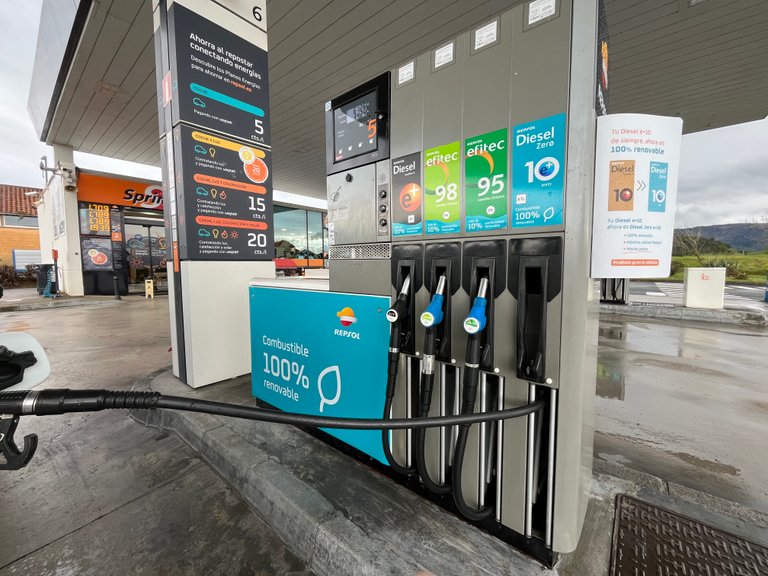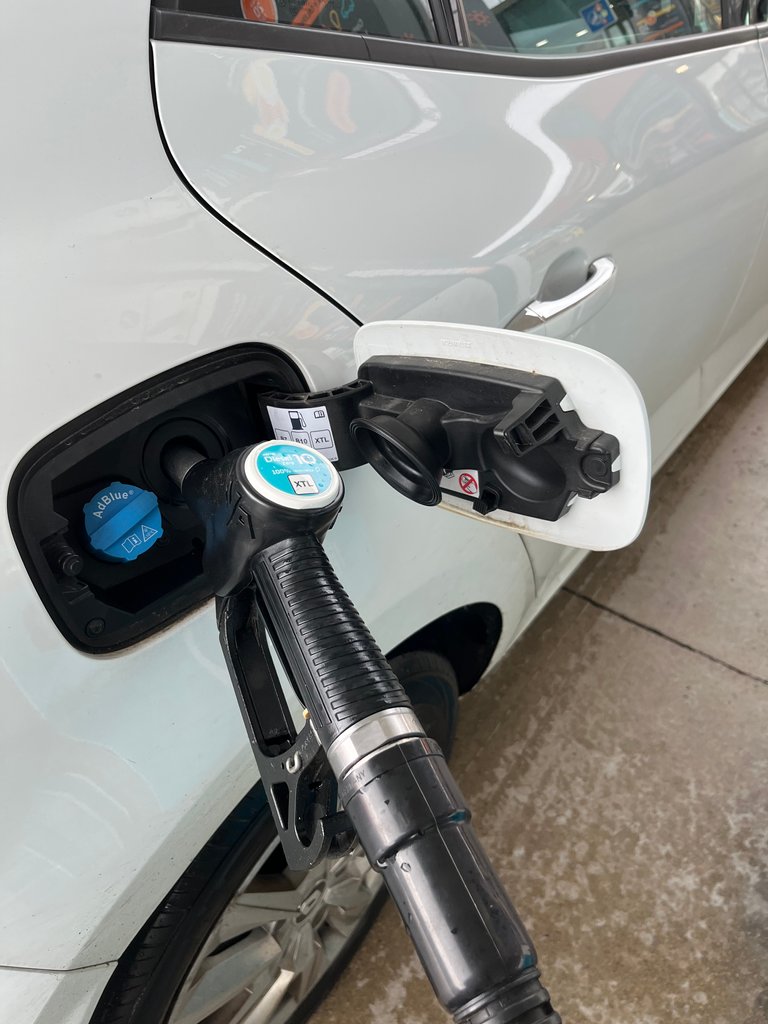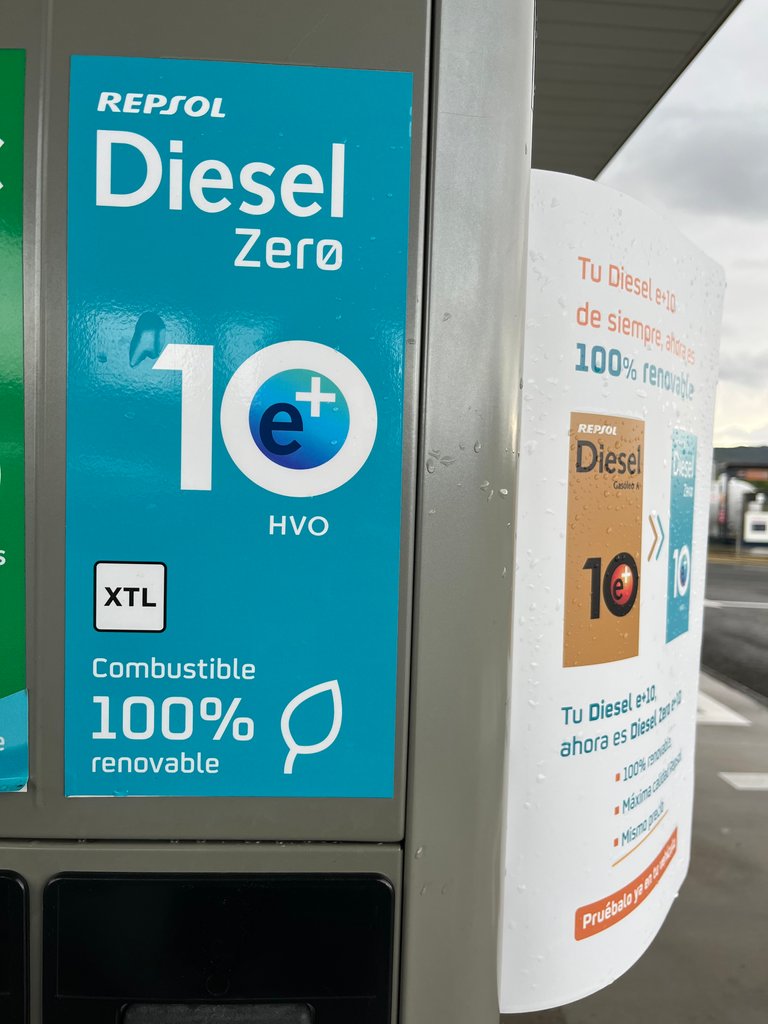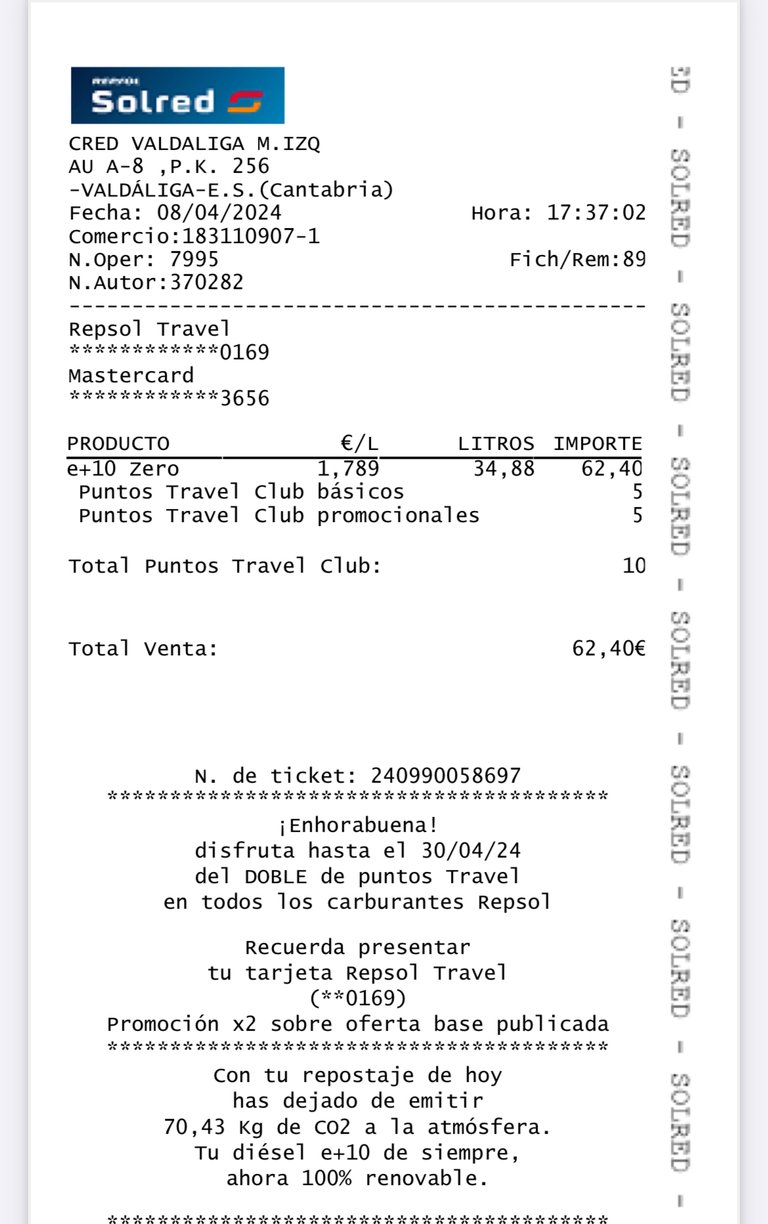This afternoon, on my trip with my company vehicle, which is a passenger car that consumes diesel, I found a pleasant surprise at the pump: there was a hose indicating that it was 100% renewable fuel.

Without thinking twice and after checking that my vehicle in the tank indicated that it was compatible with fuels labeled in Europe as XTL.

What are renewable fuels or diesels?
Renewable diesel, unlike normal diesel, does not come from a fossil reserve that can be depleted, but is manufactured from sources that are recovered or are very abundant in nature.
The main feedstock of this second-generation renewable diesel is organic waste such as cooking oils, forest biomass or agricultural and livestock waste . Therefore, they are more sustainable fuels than first-generation fuels, which were produced from corn or other crops, the main drawback of which was the displacement of soil for food production for the manufacture of first-generation diesel.

In fact, a few weeks ago I started to hear advertisements about this new diesel in which users could take liters of used cooking oil to replace it with vouchers for the purchase of renewable diesel.
What vehicles is it compatible with?
After talking for a while with the owner of the gas station where I refueled, I was able to confirm with him that this renewable diesel is compatible with all current diesel engines. So it is great news from the point of view of reducing environmental impact as it is considered to be a zero-emission fuel.
However, CO₂ emission does occur in our engines, but this CO₂ emission is offset by the absorption of CO₂ from the trees and silvers used to make the diesel, so it is considered a zero-emission balance fuel.

As I was able to verify on the purchase receipt of the refueling, 70.43 kg of CO₂ to the atmosphere with respect to the use of diesel with fossil fuel origin.

A small drawback, depending on how you look at it.
The only downside I see to this fuel is its price, which is about 10 euro cents more expensive than fossil fuel, so many people may choose to continue consuming fossil fuel instead of renewable fuel.
However, I can indicate that the consumption number of kilometers traveled per tank of fuel is about 180 km higher. So it compensates a good part of the higher price of renewable fuel.
My Purpose
My purpose from now on will be to use this type of fuel for the following reasons:
- Zero emissions balance to help the environment in part.
- Greater number of kilometers with the same tank of fuel, so on long trips I will have to make fewer stops.
- The cooking oil I will accumulate in bottles to exchange for fuel vouchers, which is also a small saving.
Best regards.




